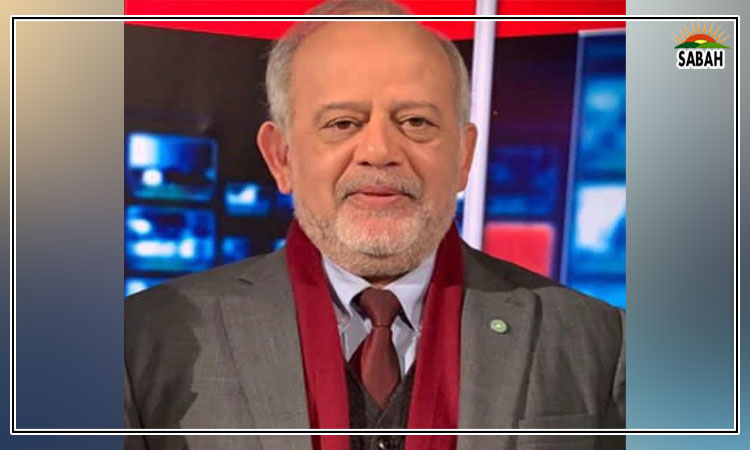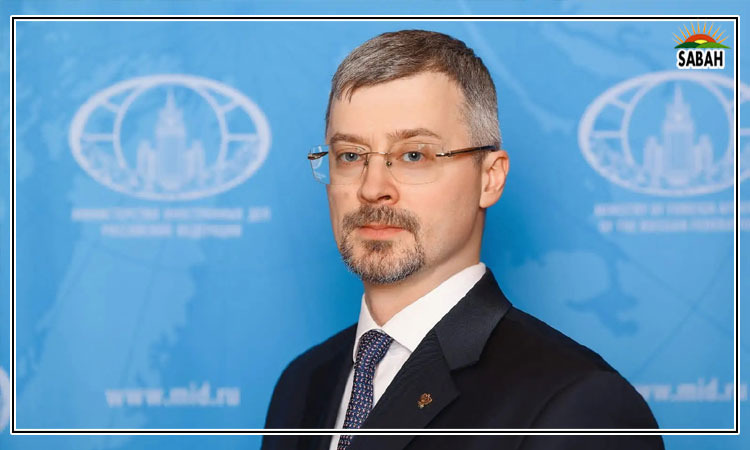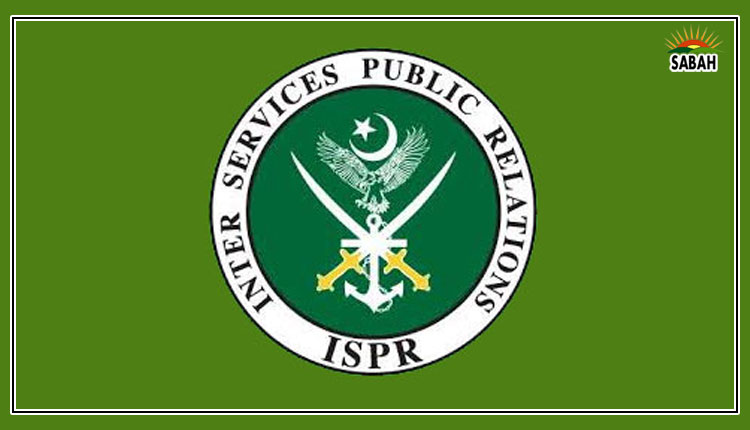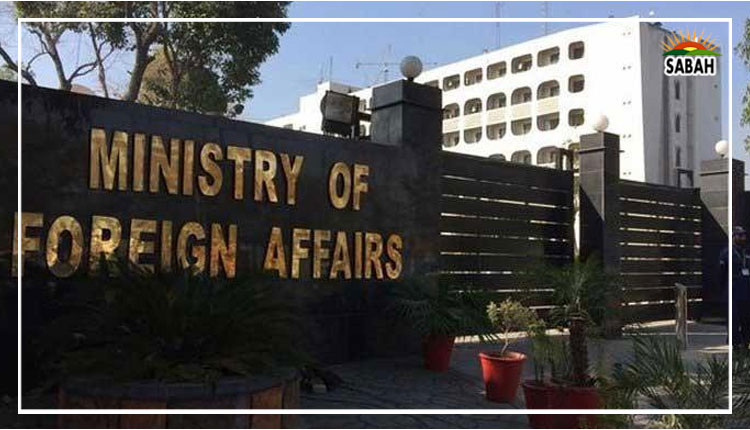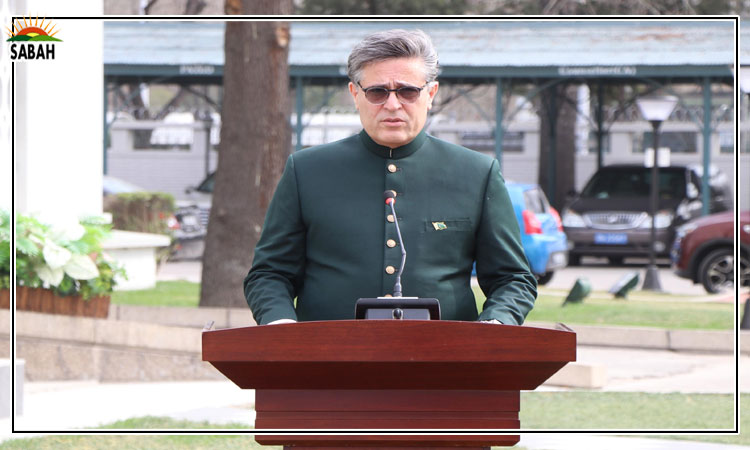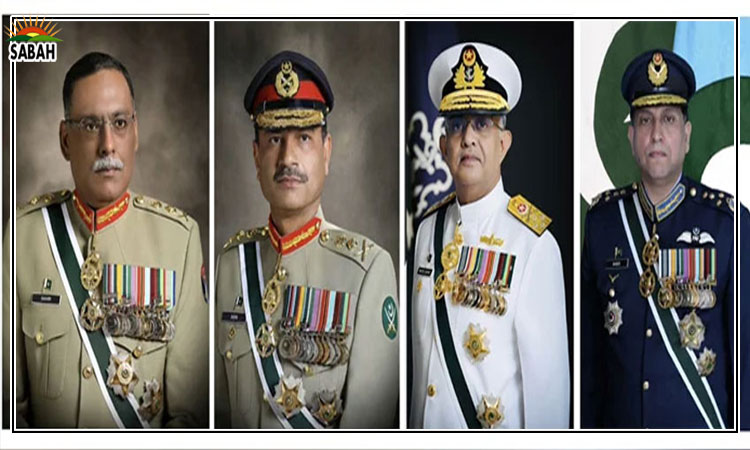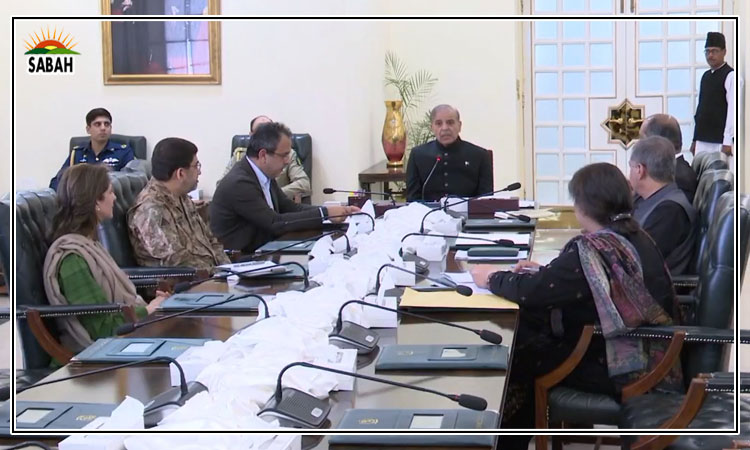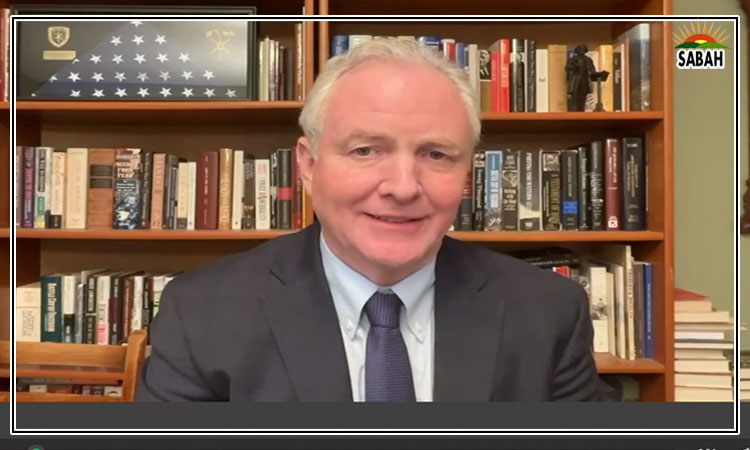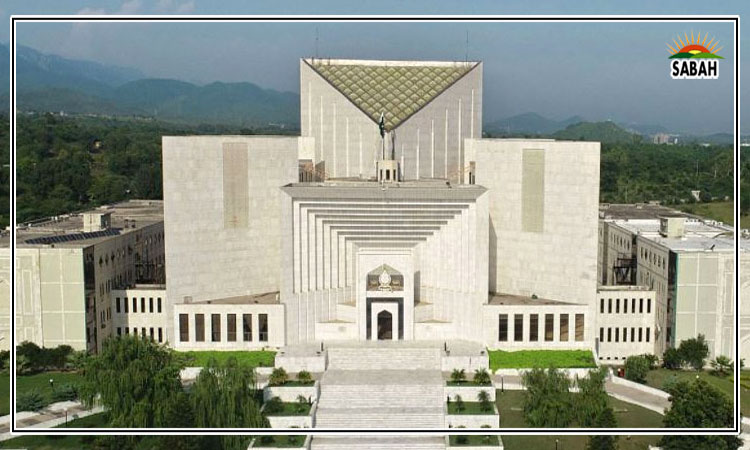Constitutional Bench of SC asks why May 9 accused ‘specifically’ tried in military courts against precedent
ISLAMABAD, Jan 09 (SABAH): Constitutional Bench of the Supreme Court of Pakistan on Thursday questioned why the civilians involved in the riots on May 9 were “specifically” tried under the military courts contrary to precedent.
The seven-member Constitutional Bench, headed by Justice Aminuddin Khan and comprising Justices Jamal Khan Mandokhail, Muhammad Ali Mazhar, Syed Hassan Azhar Rizvi, Musarrat Hilali, Naeem Akhtar Afghan and Shahid Bilal Hassan, resumed the hearing of the case regarding the trial of civilians in military courts.
Justice Syed Hasan Azhar Rizvi said that General Headquarters (GHQ) was not first attacked, adding that in past also GHQ was attacked, people were martyred, Naval airbase in Karachi was attacked, a Korean plane was damaged and it caused billions of rupees loss and the plane of the former army chief was hijacked when he was on a foreign visit and the case was tried by ATC judge Rehmat Hussain Jaffery and the decision was upheld by Supreme Court of Pakistan whether these cases were tried in military courts, data should be provided in this regard. “Tell us, where [were the hearings for the] attacks held?” he asked, adding that if the terrorists in those attacks were tried in ordinary courts, “what did the people [involved in] May 9 have to go to military courts?”
Justice Mandokhail, while referring to the difference in decisions between the military and antiterrorism courts, asked whether “special evidence” was being presented in the military trials.
During the hearing, Advocate Khawaja Harris Ahmad, who appeared as the defence ministry’s lawyer, read out the five-member SC decision declaring military trials of civilians null and void. He posited that, according to the order, all were fundamental rights which were explained.
The constitutional bench questioned the military trial of the “specific” people accused of May 9.
“Where the decision was taken as to who would be tried in the military courts and who would not?” asked Justice Mussarat Hilali.
Justice Muhammad Ali Mazhar remarked that since the first information report (FIR) filed against the May 9 culprits was bundled together, “where did the distinction come from for some to be tried in the ATC while others to be tried in the military courts?”
On the other hand, Justice Naeem Akhtar Afghan asked the defence ministry’s lawyer how many people were accused in the May 9 events. He also inquired whether any ATC order was issued against people tried by the military courts.
Justice Mandokhail questioned the defence ministry’s lawyers regarding who initiated the process of taking someone under military custody. Meanwhile, Justice Hilali asked for an example where the military trial of a civilian was held without suspending the constitution.
Justice Muhammad Ali Mazhar asked for an FIR in each one of the cases.
“The accused is being acquitted by the anti-terrorism court and then is being sentenced by the military court. Is any specific evidence being provided to the military courts?” Justice Mandokhail asked.
“Why are anti-terrorism courts not being strengthened?” he asked. “The courts have to decide after looking at the evidence.”
Justice Rizvi remarked, “Is the May 9 incident more serious than terrorism that the trials of the accused were carried out in military courts?”
During the hearing, Additional Advocate General of Punjab (AAGP) Wasim Mumtaz Malik posited that criminals in solitary confinement were released outside after breakfast at 7:00 AM and stayed outside until 5:00 pm.
“Which lawn is it? It’s not the lawn with the death cell?” Justice Mandokhail asked.
“No sir, this is not the lawn that you have seen […] there is a tuckshop and you can also drink coffee and take tea on your own expense,” he said.
Advocate Faisal Siddiqui asked the AAAG, “You mean there is a home-like environment in jail.”
Justice Hilali said that if the AAAG was found to be lying, the court would seek a report from the reform committee in the prison.
“I have been practising for 30 years, why would I lie?” Wasim Mumtaz Malik said.
In response, Justice Hilali remarked that she had served as an AAG in KP. “We are the government’s lawyers, we have to support the government,” she said.
Analyst Hafeezullah Khan Niazi then appeared on the rostrum and said that “all accused were kept in the high-security zone”. “We are not being allowed to sign the power of attorney,” Niazi said.
Justice Mazhar said that no one was stopping them from handing over the power of attorney.
“Brigadier (retd) Javed Akbar was not allowed to sign the power of attorney,” the lawyer replied.
The AAAG, in response, said that lawyers had access to a meeting.
Justice Mandokhail said that according to the jail manual, the superintendent was obliged to provide facilities.
The bench ordered that the session judges were responsible to ensure jail manual if the convicts are not allowed to sign power of attorney then the sessions judges should be approached. Subsequently, the court adjourned the hearing until tomorrow (Friday). Khawaja Harris Ahmed will continue his arguments.


